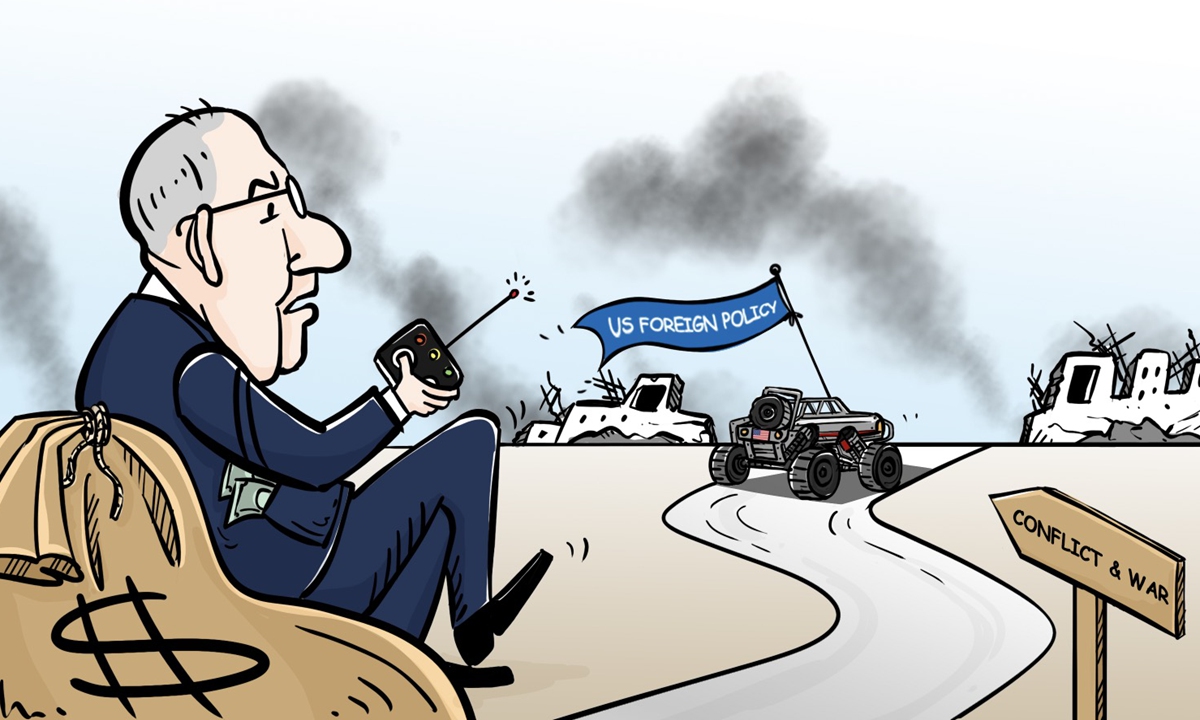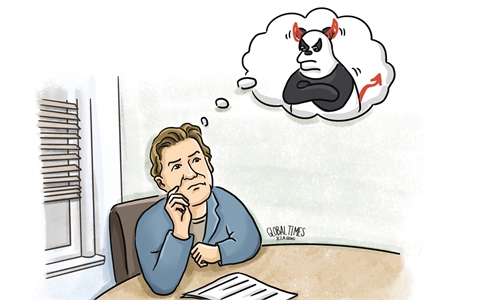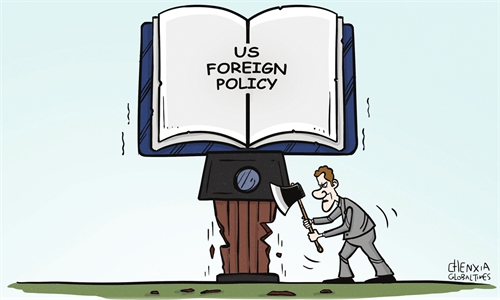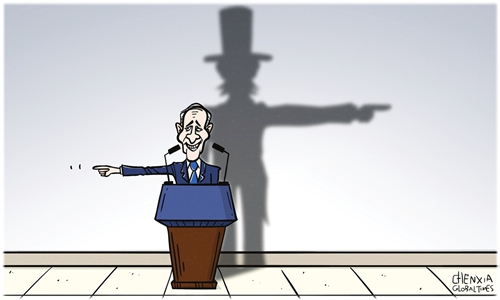
Illustration: Chen Xia/Global Times
An active duty US four-star general recently expressed his belief that the US will go to war against China over Taiwan island in 2025 in a memo sent to the officers he commands. The memo predictably found its way into the public domain.That prediction is only the latest of many by senior US military officials in recent years. They are all similar in content, but each one in succession has a nearer time horizon. Their prophesies consistently omit the fact that China steadfastly expresses its preference for reunification by peaceful means.
The permissibility of such public warmongering by uniformed US generals and admirals calls into question civilian control of the military firewalling officers from foreign policy development. The typical outcome is that such sensational media reports of military concern alarm the White House and Congress alike. In the case of Taiwan island, this leads to the increased production of advanced weapons and their accelerated delivery. The knee-jerk policy responses to military coercion are things observed in the foreign countries the US has condemned and fought in wars against in the past.
Given that all evidence points to a role reversal in US national security policy-making, there must be a rational explanation for an otherwise unconstitutional evolution.
Beginning with the spectacular victory of the all-volunteer US military in the first Gulf War, the negativity of the Vietnam war was finally overcome. In the years and decades that have followed the military has rightfully emerged as an exemplary, though less representative class, that showcases the best in American character.
At the same time members of Congress are unencumbered by conscription, and far fewer have elected to serve in the military. This gave rise to two phenomena. The civilian political class today lacks military insight and expertise, increasing its dependence on active duty and retired military leaders in policy development. Additionally, Congress' reduced service credentials have cowed many elected officials from challenging military perspectives and resource requests out of fear of being characterized as unpatriotic.
As a consequence, new generations of general officers and admirals have emerged as celebrated and largely untouchable public figures. In particular, four-star flag officers now constitute an elite special class that is considered above reproach by default, roughly corresponding to a form of American royalty. Four-star flag officers in particular, are fawned over by the media, Congress, and throughout the Executive Branch, and coveted for employment in the defense industry and media as retirees.
The recent public senior leader comments presume an ever more immanent conflict with China, and imply support for an increase in US Indo-Pacific Command military capabilities and arms sales for and to Taiwan island. In a fashion that is indistinguishable from civilian obedience to the military, an uncritical US president and Congress reflexively concur.
General officers and admirals are anything but irrational. Knowing from precedent that the impact of warmongering words could have on policy in the current climate, what caused an active-duty leader to depart from our tradition of military subordination to civilian leadership? Public messaging is as impactful as issuing orders.
Despite their rightfully celebrated status, like all human beings, senior generals and admirals are fallible and are not immune to conflicts of interest. They are not insulated from powerful factors that have little to do with the best interests of their Soldiers, Sailors, Airmen, Marines or even American society. Instead, they find themselves torn and politicized within a network comprised of competing interests.
These often include their future ambitions as four-star flag officers are at the peak and nearing the end of their military careers. They also could include personal loyalties to and friendships with retired senior mentors under whom they once served and who are now working in defense industries with revenue and profit agendas. Finally, they might want to preserve their forward leaning legacies, all the while with a subconscious awareness that advocating a bigger stronger military in the nearer term improves their odds of being coveted by the largest defense contractors in retirement.
Mind reading is impossible, and some out-lying officers may indeed be immune to such forces. But past precedent is informative in the case of future retired military four-star employment.
For example, Lockheed Martin Corporation, BAE Systems Inc., Raytheon Technologies, and Huntington Ingalls Shipbuilding all employ four-star flag officers. These do not count the many dozens of retired three, two and one-star generals and admirals that are employed on boards throughout the defense industry.
A number of retired four-star generals and admirals spread across just eight of the US' largest defense contractors is noteworthy. Together, these eight companies are overwhelmingly responsible for and benefiting from the arming of Taiwan island and US preparedness to fight China.
Returning to the issue of any rational active duty flag officer's public comments having a predictably out-sized influence on American foreign policy, a permissive US government culture is suspect. Any suggestion that Chinese mainland will likely invade Taiwan island in 2025 when that comment does not reflect China's history or preference for peaceful reunification fails to promote a One China policy. Instead, it could be interpreted as an incitement to fight influenced by a network of competing material interests.
The author is a retired Marine Corps infantry officer and a former Pentagon employee. Opinions are of the author and do not represent the US government. opinion@globaltimes.com.cn



